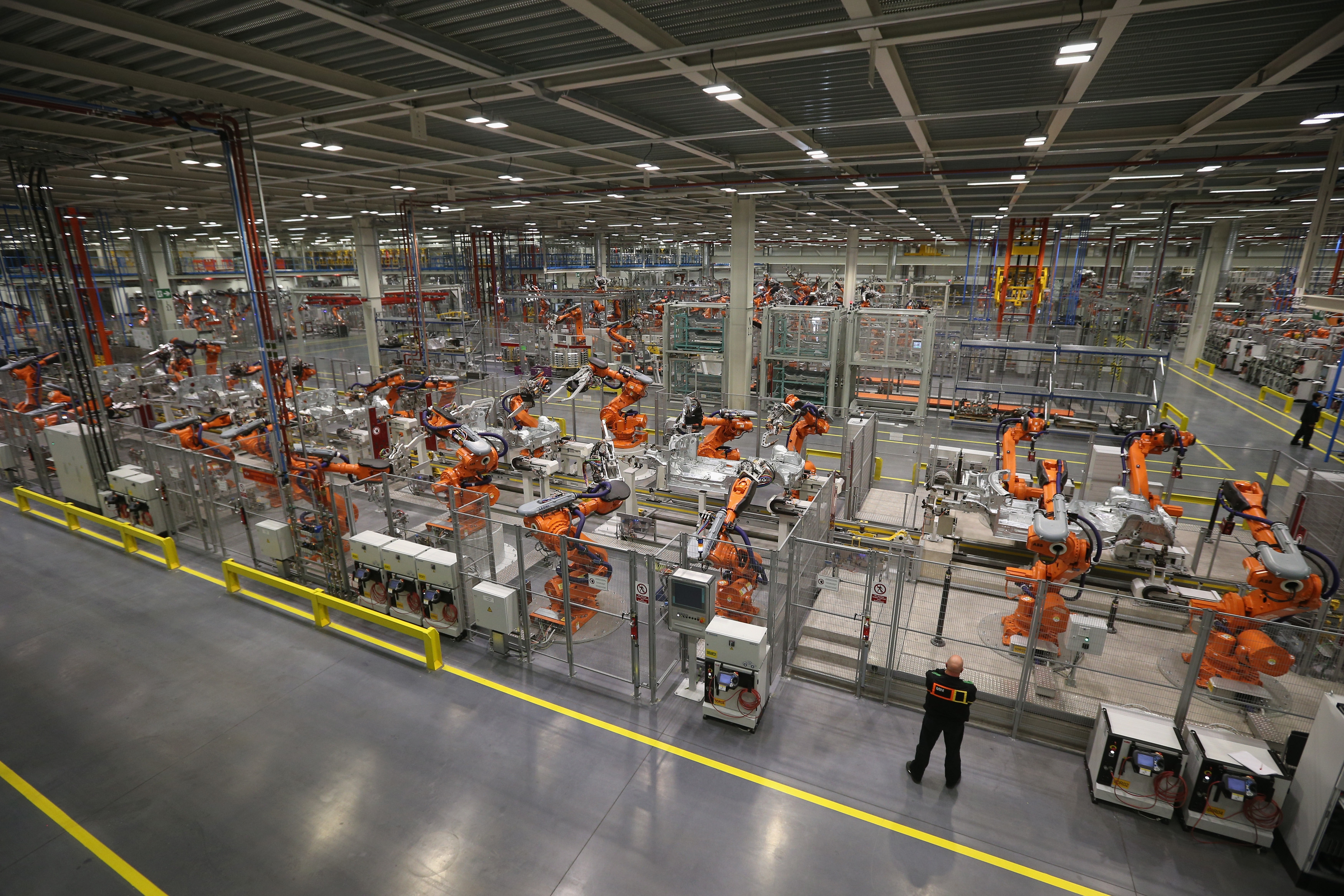Oh yes, the robots are definitely coming for our jobs


A study from the McKinsey Global Institute claims that between 400 and 800 million people worldwide could have their jobs replaced by automation by the year 2030, Axios reported Wednesday. For American workers, the study predicts somewhere between 48 and 54 million people would have to change jobs, and more than 70 million employees could be displaced completely.
Advanced economies, like the United States and Germany, are likely to see employment declines in jobs that are done in what the study refers to as "predictable settings." Things like office support, customer interaction, assembly line production, driving, and even food prep jobs are likely to be on the chopping block. That may be a little terrifying, but demographic shifts and an aging world population are likely to actually create jobs in the health-care industry, and the tech industry is expected to continue creating medium- and high-skill jobs, as well.
The study offers a few suggestions to soften the blow, namely that we work toward embracing automation, growing middle class wages, and in some cases, implementing policies like universal basic income or other income supplements. But more than anything, the study encourages its readers to embrace their humanity, and emphasizes the unique advantage we have over machines:
The Week
Escape your echo chamber. Get the facts behind the news, plus analysis from multiple perspectives.

Sign up for The Week's Free Newsletters
From our morning news briefing to a weekly Good News Newsletter, get the best of The Week delivered directly to your inbox.
From our morning news briefing to a weekly Good News Newsletter, get the best of The Week delivered directly to your inbox.
While machines can be trained to perform a range of cognitive tasks, they remain limited. They are not yet good at putting knowledge into context, let alone improvising, and they have little of the common sense that is the essence of human experience and emotion. They struggle to operate without a pre-defined methodology. They can replicate fugues in the style of Bach, but cannot yet understand sarcasm or love. [McKinsey Global Institute]
Read the entire dizzying report at the McKinsey Global Institute.
A free daily email with the biggest news stories of the day – and the best features from TheWeek.com
Kelly O'Meara Morales is a staff writer at The Week. He graduated from Sarah Lawrence College and studied Middle Eastern history and nonfiction writing amongst other esoteric subjects. When not compulsively checking Twitter, he writes and records music, subsists on tacos, and watches basketball.
-
 What will the US economy look like in 2026?
What will the US economy look like in 2026?Today’s Big Question Wall Street is bullish, but uncertain
-
 Alaa Abd el-Fattah: should Egyptian dissident be stripped of UK citizenship?
Alaa Abd el-Fattah: should Egyptian dissident be stripped of UK citizenship?Today's Big Question Resurfaced social media posts appear to show the democracy activist calling for the killing of Zionists and police
-
 Biggest political break-ups and make-ups of 2025
Biggest political break-ups and make-ups of 2025The Explainer From Trump and Musk to the UK and the EU, Christmas wouldn’t be Christmas without a round-up of the year’s relationship drama
-
 TikTok secures deal to remain in US
TikTok secures deal to remain in USSpeed Read ByteDance will form a US version of the popular video-sharing platform
-
 Unemployment rate ticks up amid fall job losses
Unemployment rate ticks up amid fall job lossesSpeed Read Data released by the Commerce Department indicates ‘one of the weakest American labor markets in years’
-
 US mints final penny after 232-year run
US mints final penny after 232-year runSpeed Read Production of the one-cent coin has ended
-
 Warner Bros. explores sale amid Paramount bids
Warner Bros. explores sale amid Paramount bidsSpeed Read The media giant, home to HBO and DC Studios, has received interest from multiple buying parties
-
 Gold tops $4K per ounce, signaling financial unease
Gold tops $4K per ounce, signaling financial uneaseSpeed Read Investors are worried about President Donald Trump’s trade war
-
 Electronic Arts to go private in record $55B deal
Electronic Arts to go private in record $55B dealspeed read The video game giant is behind ‘The Sims’ and ‘Madden NFL’
-
 New York court tosses Trump's $500M fraud fine
New York court tosses Trump's $500M fraud fineSpeed Read A divided appeals court threw out a hefty penalty against President Trump for fraudulently inflating his wealth
-
 Trump said to seek government stake in Intel
Trump said to seek government stake in IntelSpeed Read The president and Intel CEO Lip-Bu Tan reportedly discussed the proposal at a recent meeting
